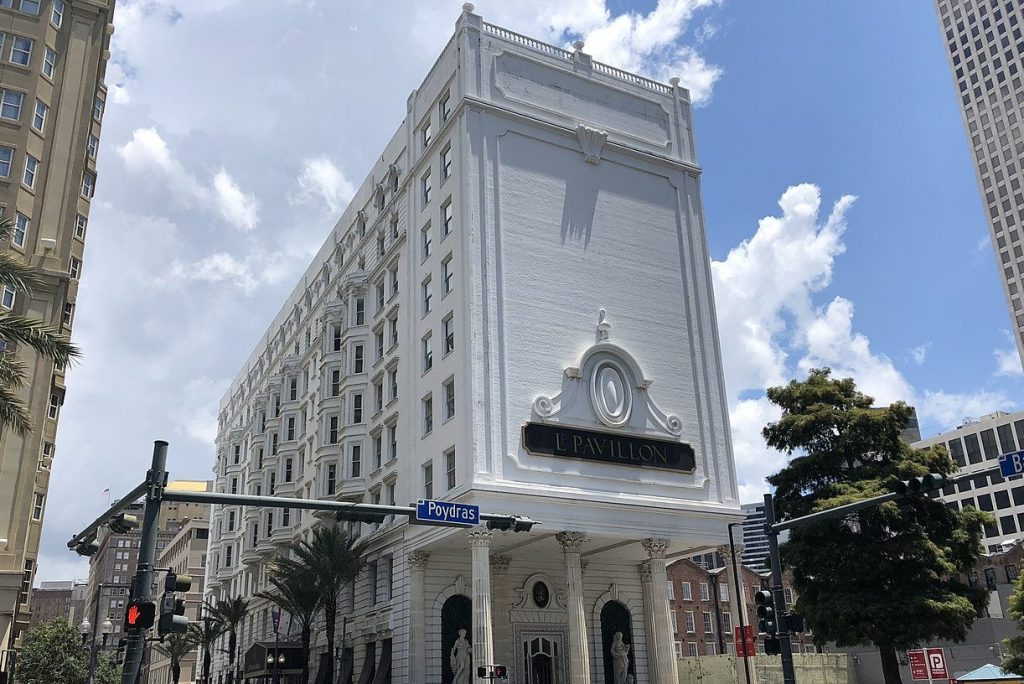Skift Take
Ashford Trust's survival strategy shows the Paycheck Protection Program may not be enough of a life raft for struggling hotels during the coronavirus pandemic.
The floodgates opened this week on the second round of federally backed Paycheck Protection Program small business loans for companies struggling during the pandemic.
But a hotel company embroiled in scrutiny during PPP 1.0 has found a different survival plan.
Ashford Hospitality Trust was among a trio of companies tied to Dallas-based hotelier Monty Bennett that took fire for receiving tens of millions of dollars in PPP loans under a $2 trillion relief measure passed early in the pandemic. Critics chided Ashford Trust, a real estate trust owning Ritz-Carlton and W-branded properties, and Bennett, a wealthy businessman, of taking advantage of a program intended to help struggling mom and pop businesses in the global pandemic.
The companies later returned the money after changing federal guidelines may have no longer made them eligible given the amount of funds received. But Ashford Trust’s hotels were still decimated by the pandemic and burning through cash.
The company, which has since found success in gaining flexible terms and forbearance from some of its lenders, cautioned as recently as last month in a U.S. Securities and Exchange Commission filing it would have to seek bankruptcy protection without additional capital. Ashford Trust’s leaders eventually secured $200 million in financing from Oaktree Capital Management, steering clear of bankruptcy.
“We believe our recently announced transaction provides ample liquidity for the company and does avert any near-term need for restructuring,” Ashford Trust CEO Rob Hays said to Skift via email.
The three-year loan has two one-year extension options as well as the potential to increase to $350 million. That timing falls in line with STR’s forecast of a full U.S. hotel recovery by 2024.
Ashford Trust owns hotels in the limited and select-service market segments under brands like Courtyard and Embassy Suites as well as some luxury properties like the Ritz-Carlton Atlanta and Le Pavillon in New Orleans. Properties in more urban locations are the leading contenders for the latest round of financing due to operating shortfalls and interest expenses, Hays said.
“Fortunately, our portfolio is a diverse mix of both full-service and select-service assets in numerous markets across the United States, so we believe we are well-positioned for the upcoming recovery,” he added.
But it is more than Oaktree’s financial life raft keeping Ashford Trust’s 104-hotel portfolio afloat.
The company secured loan forbearance agreements for typically up to six months on 62 properties, as of the end of last September. Further forbearance negotiations are underway, according to SEC filings. Hotel industry analysts generally view flexible loan terms and forbearance agrreements like this as propping up the industry from a widespread wave of defaults and distressed sales — sometimes to the chagrin of waiting opportunistic investors.
“There are still many properties that cannot cover both their operating costs and interest expense given the suppressed level of travel, so these forbearances have been crucial in providing our properties with needed liquidity and allowing them to stay open,” Hays said.
Ashford Trust’s continued struggles following last year’s PPP scrutiny puts renewed attention on the small business program and who should be eligible. Ashford Trust, Braemar Hotels & Resorts, and Ashford Inc. — which manages hotels for the other two companies — along with Bennett garnered criticism, but they were ultimately still eligible for the program at the beginning.
The scrutiny gave way to changing terms and caps on how much money could be taken out from the program. But it also led to an education of the hotel industry for much of the general public.
Most properties, while licensing branding rights from a major hotel company, are run as individual small businesses that would ultimately qualify for PPP funds. It is why trade organizations like the American Hotel & Lodging Association continued to lobby for additional PPP funding for the next round of coronavirus economic relief, which passed last month.
Hays isn’t publicly harboring a grudge about PPP, instead noting it may not have been enough anyway to save the company.
“Undoubtedly the cost of capital of our announced transaction is greater than the cost of capital from the PPP loans, so from a cost perspective the PPP loans would be superior,” he said. “However, it is unlikely that the funding from the various PPP loans would have been sufficient to sustain our business through the entire pandemic, thus we may have had to do a similar transaction to the one we recently announced regardless.”
Have a confidential tip for Skift? Get in touch
Tags: ashford hospitality, cares act, coronavirus, coronavirus recovery
Photo credit: Ashford Trust's assets include Le Pavillon in New Orleans (pictured). Bjoertvedt / Wikimedia
